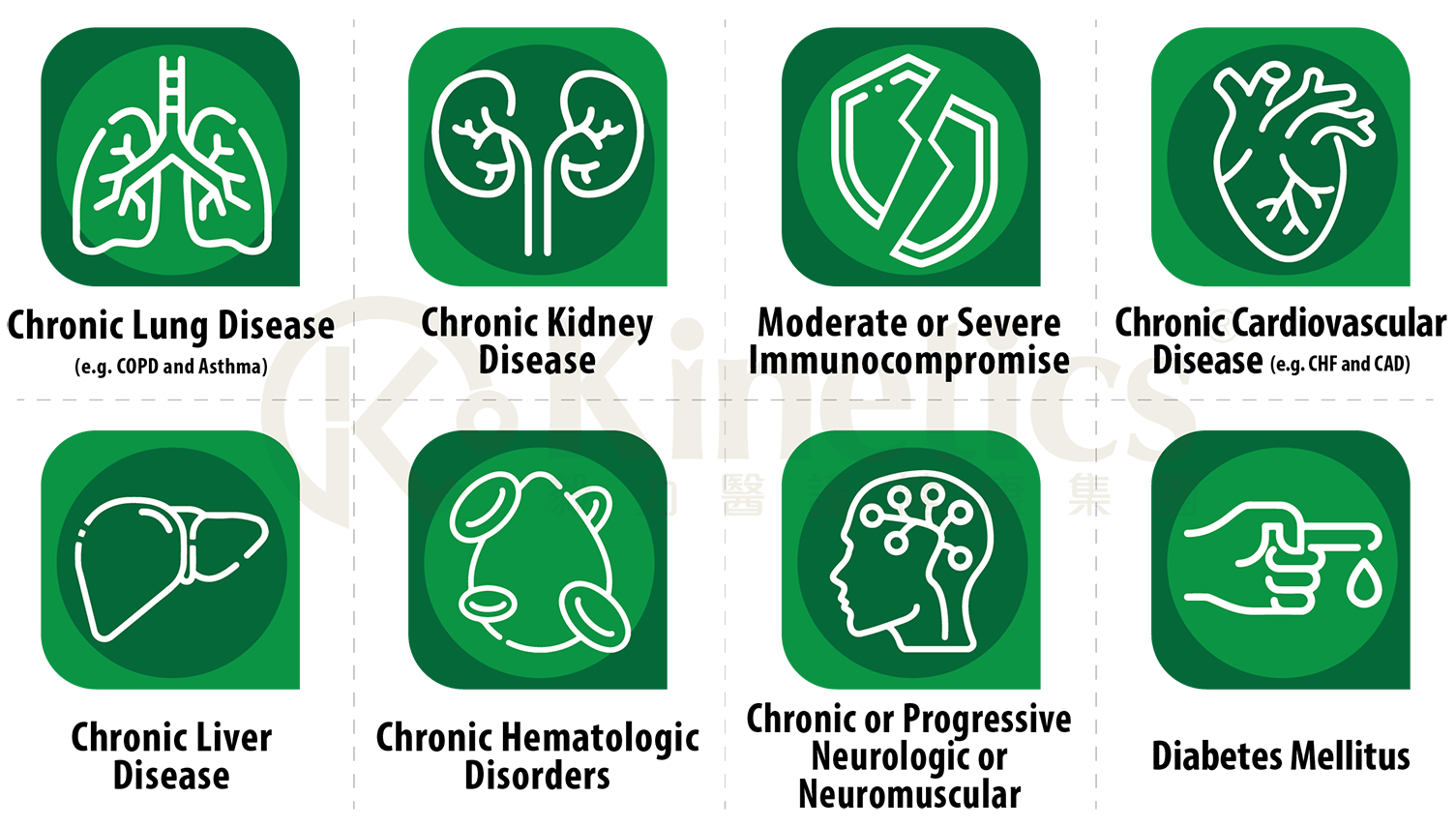
Respiratory Syncytial Virus (RSV) Vaccine
Respiratory syncytial virus (RSV) is a common respiratory virus that usually causes mild, cold-like symptoms. Most people recover in a week or two, but RSV can be serious. Some people with RSV infection, especially older adults and infants younger than 6 months of age, may need to be hospitalized if they are having trouble breathing or are dehydrated, which can even lead to death.
RSV infection occurs year-round. In the past, prevention of RSV infection could only rely on maintaining personal and environmental hygiene. There is currently no specific drug to treat the infection. Hong Kong recently became the first region in Asia to introduce RSV vaccine. The RSV vaccine helps to build a more comprehensive protective barrier, with a protective power of approximately 82.6% to 94.6%.
Clinical Features
RSV causes respiratory tract diseases such as infection of the airway, lungs and middle ear. It is the most common cause of bronchiolitis and pneumonia for those under 1 year of age. Patients develop fever and other symptoms such as runny nose, cough, headache, decreased appetite, body ache or weakness, and occasionally otitis media.
Mode of Transmission
The virus can be transmitted by direct contact with infectious secretions, by droplets spread, or indirectly through contaminated hands, eating utensils or articles freshly soiled by nasal or throat discharges of an infected person.
Prevention
The best preventive measures are to maintain good personal and environmental hygiene.
1. Receive respiratory syncytial virus vaccination
2. Maintain good personal hygiene
3. Maintain good environmental hygiene
Recommendation: Who Should Get RSV Vaccination? 💉
Adult 60 Years of Age and Older
Efficacy - Adults 60 Years of Age & Older 💉
#Comorbidities of interest: Chronic obstructive pulmonary disease (COPD), asthma, any chronic respiratory / pulmonary disease, chronic heart failure, diabetes mellitus type 1 or type 2 and advanced liver or renal disease (endocrinometabolic)
*LRTD = Lower Respiratory Tract Disease

HOME | About Us | Health Check | Vaccination | Other Service | Privacy Policy | Contact Us | Sitemap | Recruit
HOME | About Us | Health Check | Vaccination | Other Service
Privacy Policy | Contact Us | Sitemap | Recruit
Copyright © 2018 毅力醫護健康集團 Kinetics Medical & Health Group 版權所有 不得轉載
